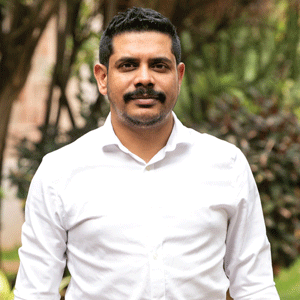
Ever since its invention in AD 105, the demand for paper has risen consistently all over the world. The paper industry reportedly devours 42 percent of all the wood felled industrially every year and it is responsible for clearing a forest of about three million (3,000,000) hectares annually. With more than 50,000 hectares of forest being cut down at once just for paper, its impact on the environment is easily predictable. Now that paper can be made sustainable and guilt-free, the demand for eco-friendly papers has grown exponentially and the awareness for tree-free paper has become a crucial aspect of the paper industry. With a vision to save trees, reduce water consumption, and upcycle textile as well as agricultural wastes, Bluecat Paper aces in producing smooth and easy work on papers. Established as a 100 percent eco-friendly and sustainable business that produces tree-free paper using residual waste, Bluecat Paper has saved over 70000 trees and recycled/upcycled exceeding 100000 tons of residual waste since its inception in 2019 and is also educating the customers on the same by conducting several workshops.
Save Trees, Save Water, and Reduce Waste
With a strong focus on giving alternative and sustainable paper options without having to cut down trees to create paper, Bluecat Paper specializes in reducing waste by adopting upcycling methods. It also uses techniques that reduce the consumption of water by recycling over 65000 litres of water per day. Producing high-end, rustic, and premium quality paper, which are made from high-quality organic material and are naturally strong, Bluecat Paper is committed to competitive prices as well as excellent buyer service.
Since its inception Bluecat Paper has exported to up to 30 countries all over the world, including the UK, USA, Australia, Spain, Italy, Canada to name a few, ensuring the provision of good export and efficient shipping. With a prominent online customer base that has been growing significantly, Bluecat Paper is active in all social media platforms such as Instagram and Twitter to arrest the attention of its customers. To organically enhance its customer reach, the company indulges itself in the Google AdWords campaign and holds an extensive range of 15-18k online customers including giant conglomerates like Amazon and Flipkart.
“Handmade objects are always special. A gorgeous piece of tree-free paper is sure to arouse your senses as you sense a person behind the product and not a machine. We use cellulose-rich waste such as cotton rags, linen rags, coffee husk, banana fibre, mulberry, corn husk, elephant poo, bagasse, vetiver grass, ragi, tea waste, and flax fibre as our raw materials for all purposes such as notebooks, gift wraps, bags and so on. ‘Save trees, Save water, and Reduce waste has been the motto of Bluecat paper in its continuous fight for the cause of tree-free paper,” states Kavya Madappa, Founder, Bluecat Paper.
The Journey So far
Commencing her entrepreneurial journey with the Amanvana spa resort at Coorg district, Karnataka, India, which is home to 300 species of plants and birds, Kavya recognized the need for eco-friendly paper after envisaging the resort’s need to constantly print brochures, bills, and so on. Sharing her thoughts on eco-friendly papers, Kavya shares, “Although paper is a cheap commodity, its preparation in a sustainable way is a mighty challenge but there is no one to take the issue seriously. Apart from the degradation of our environment, planting and nurturing the trees just to cut them down is an expensive process and therefore alternative ways of papermaking are virtuously more desirable.”
To understand the process of handmade papermaking, Kavya went to Kumarappa National Handmade Paper Institute in Jaipur and spent about 15 days at the institute. There she learned about turning cotton rags and waste from the textile industry into paper as well as how to size those handmade papers for printing. After returning from the institute, she interacted with scientists, researchers, horticulturists, farmers and found that cellulose, which is one of the main components to make paper, is found in waste materials like flax, coffee husk, lemongrass, and so on.
Acquiring all this knowledge, Kavya saw the potential in starting a business where paper could be made using these waste materials.
When Kavya started her voyage towards establishing Bluecat Paper with a determined mindset, the challenges were many, especially setting up the unit with rudimentary machines as the machines that were available were for tree centric papers. After numerous expensive trials and errors on the part of engineers and R&D of Bluecat Paper, the most uphill task for the company was to set up made-in-India machines for converting textile waste into paper. Also, the reluctance of big conglomerates to switch to tree-free paper from regular paper was another big challenge because of the higher cost difference. As Bluecat Paper began the relentless pursuit of making eco-friendly paper cheaper, more machines to convert the waste into paper were introduced.
As the co-founder of Bluecat Paper, Nikhil Reddy has played a prominent role in setting up the advanced machinery and logistic process for the organization. Leveraging his expertise to work on the import & export vertical of the business, Nikhil has also framed the website for Bluecat Paper, enabling the organization to excel in SEO, marketing, and other digital aspects. Nikhil not only handles the digital, social media, and export arm of the operations but also researches new markets which have contributed to the significant growth of Bluecat Paper. As the firefighter at Bluecat Paper, Nikhil Reddy solves multiple issues ranging from exports to mechanical issues and helped Bluecat Paper to evolve as an eco-friendly and sustainable initiative.

Nikhil Reddy, Co-Founder
Unique Environment-Friendly Model
Starting from conducting extensive experiments with over 18 varieties of cellulose-rich Agri-waste such as flax, lemongrass, mulberry, rice stubble, coffee husk, banana stumps, coconut husk, and even elephant poo, Bluecat Paper started educating farmers to sort aside from the residual waste for paper making. Monetizing the farmers to send the waste to the Bluecat Paper unit located in Bangalore and not burn it like they usually did, the organization gradually started discovering various innovative alternatives to prevent the trees from being cut down for paper.
Gradually, Bluecat Paper started teaching local laborers to make paper and explain concepts like GSM, which turned out to be quite rewarding for the firm. With time, Bluecat paper started training the unskilled workers to help them transform into a team of skilled paper makers and product makers, who were soon churning out chemical-free paper on their own.
‘Save trees, Save water, and Reduce waste’ has been the motto of Bluecat paper in its continuous fight for the cause of tree free paper
Bluecat Paper firmly believes that it can empower several textiles and agro-industries such as lemongrass, coffee pulping, flax businesses to achieve their eco-friendly goals by converting and upcycling their residual waste into paper through a sustainable and environment-friendly model. Determined to create 100 percent tree-free paper, Bluecat Paper implements innovative technological aspects by installing efficient choppers and beaters for easy waste collection.
Since the usage of natural ingredients makes an efficient recycling system, Bluecat Paper has introduced an effluent water treatment plant to recycle water back to production. Apart from ensuring the provision of easy transactions in terms of good export and efficient shipping via its e-commerce portal, the website of the firm offers detailed information to educate the harmful effects of tree paper. But the factor that makes Bluecat Paper stand out exclusively amongst other players in the market is its Seed paper products that encourage the clients to grow a few garden plants like herbs, vegetables, and flower seeds.
Promoting Innovation and Sustainability
Attending international paper fairs and displaying data and information to use tree-free paper, Bluecat Paper has been able to carve its identity as one of the promising eco-friendly organizations that promote sustainability through its authentic tree-free paper products. Bluecat Paper has collaborated with Anna Gadecka from Poland to create a unique paper that saves bees by enabling them to extract the glucose from the paper and reach their homes.
Apart from encouraging seed paper for wedding invites to help customers support sustainability on special occasions, the firm is also researching rice stubble paper which is a menace in North India, and helping a few textile companies to recycle their textile waste into office supplies, stationery, and visiting cards. Producing 31 billion dollars’ worth of textiles, Bangladesh is considered the primary producer of textiles for the world and Bluecat Paper is planning to venture into the Bangladesh market to efficiently convert its textile waste into paper.
“To make the tree-free paper the new norm, we aspire to set up channels where cellulose-rich waste can be segregated and collected from textile industries and farmers. To make each product unique and ensure customer satisfaction, we will emphasize training and recruitment of more resources. Introducing new machines and processes, we would like to make the paper more eco-friendly and cheaper, which was the basis of establishing Bluecat Paper,” concludes Kavya.
We use cookies to ensure you get the best experience on our website. Read more...